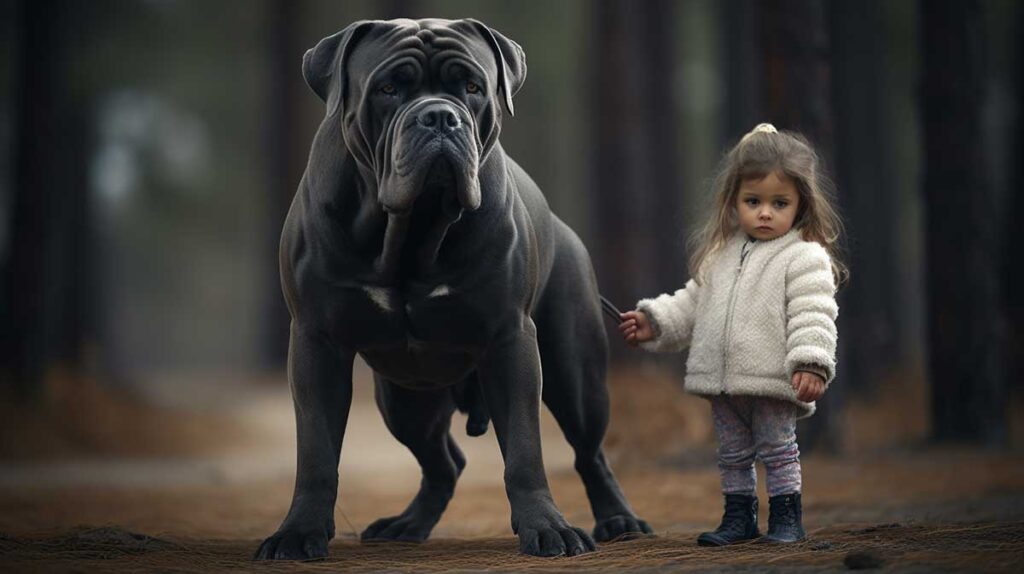Having a dog is undoubtedly an excellent experience for children. Pets teach them not only responsibility but also provide them with a lot of unforgettable moments. So, if you’ve already decided that a Cane Corso should become your new family member, here are the facts you need to know about this gorgeous breed.
Even though Cane Corso is widely known as a robust and high-energy dog, it has powerful guarding instincts toward his family. One of the main reasons why Cane Corsos are great pets for kids is that they are incredibly loyal and protective. However, like any other dog, they need to be correctly socialized.
Cane Corso with kids = early socialization
If we look at the history of Cane Corsos, we will realize that they have always served as working and companion dogs. They used to spend time with their masters, so that’s why they have a higher tendency to suffer from separation anxiety if left alone. It also should be noted that this breed is not the right choice for first-time owners. You must act very carefully when you train a Cane Corso because it is a high-energy dog with a firm and stubborn personality.
So, to live with an obedient dog, you must adequately introduce it to other dogs, people, and noises. Early socialization is essential and will affect his or her friendly behavior toward kids. Although it acts nicely with all family members, Cane Corso requires profound training lessons. Otherwise, it could be challenging to correct his behavior later, and the only thing you’ll get is a dog with destructive and stubborn behavior. Therefore, we advise you to start with proper socialization from early puppyhood.
Another key to owning a Cane Corso that will act well with kids is going through a pack leader program. Every dog needs to have the pack’s leader; in this case, it’s you. Once a dog has learned who his leader is, he will treat the master and his family members with respect.

Is Cane Corso aggressive with kids?
Indeed, this dog breed acts well with kids, especially if they grow up together. They are always eager to play and ready to clown around to make their youngest family members happy. And, for Cane Corsos it’s not surprising since they always search for some action that will help them release their pent-up energy.
On the other hand, it’s not advisable to leave kids with Corsos without supervision. Since toddlers usually love to jump on dogs and pull their ears and tails, you shouldn’t allow them to do that to this breed. Otherwise, Cane Corso will be ready to get back at them. Anyone who treats them without respect won’t end up glorious.
Is Cane Corso friendly with strangers?
If expecting guests, you’d better put your four-legged friend in a crate. Since Cane Corsos are very territorial, they consider strangers a threat to their families. However, it also depends on your family’s lifestyle. If your dog is used to meeting new people from early puppyhood, he’ll not act aggressively toward strangers.
Wrapping up
By bringing a Cane Corso to your family, you’ll have a lot of things to do. The first and most important task is to set boundaries from the start because you need to become your pack leader. The next step presents early socialization and introduces a dog to how the outside world works. So, before you decide to buy this puppy, our advice is to choose a reputable breeder. In that way, you’ll escape potential health issues and live with a safe and calm-tempered companion.

